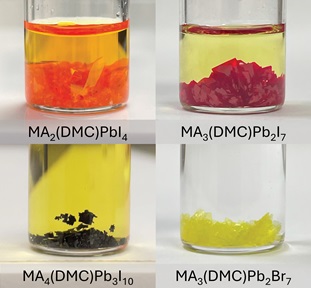Solving fundamental questions in biology
Assoc Prof Ali Miserez, an expert in bioinspired engineering, embarks on a quest to solve “one of biology’s hottest questions”.

Like shifting globules in a lava lamp or oil droplets in a bottle of shaken vinaigrette, unmixable fluidic droplets made of biomacromolecules such as proteins and RNA form distinct liquid compartments inside and outside cells. Liquid-liquid phase separation (LLPS), as it is called, in biological cells and extracellular matrix has been termed “one of biology’s hottest questions” by leading scientific journal Nature.
The question of how LLPS benefits cells is now being investigated by a multidisciplinary team of NTU researchers, led by Assoc Prof Ali Miserez of NTU’s School of Materials Science and Engineering, and supported by a large grant from Singapore’s Ministry of Education.
Assoc Prof Miserez’s research programme, “Phase separation regulated life, in and outside of cells”, will use nuclear magnetic resonance spectroscopy, advanced liquid-phase and cryo-electron microscopy, cell biology, computer modelling and translational engineering to study what appears to be a universal biological strategy across different organisms and cell types, as well as different levels of biological organisation, including the cell nucleus.
“Our goal is to develop new principles for biomedical applications and innovations exploiting LLPS, such as in crop and bioplastics production, controlled drug delivery, wet adhesives for tissue repair, and micro-droplets for cell-free gene expression,” says Assoc Prof Miserez.


.tmb-listing.jpg?Culture=en&sfvrsn=370a7c71_1)

.tmb-listing.jpg?Culture=en&sfvrsn=29c7e020_1)
.tmb-listing.jpg?Culture=en&sfvrsn=ab6472c8_1)
.tmb-listing.jpg?Culture=en&sfvrsn=55153609_1)
